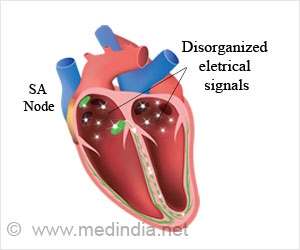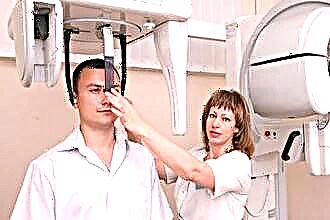The effect of atmospheric pressure on a person's blood pressure can cause serious health problems. In medical practice, a group of patients is distinguished, whose condition depends on the weather. They are called weather-dependent, because the body of such people is sensitive to a decrease or increase in atmospheric pressure, temperature drops, and precipitation.
A sudden change in the weather can make them feel worse. People who periodically experience an increase in tonometer readings are especially sensitive to weather fluctuations.
The effect of high atmospheric pressure on the human body
 Atmospheric pressure that exceeds 760 mm Hg. Art., is considered elevated. During the entire calendar year, this value often increases by another 30 units, which undoubtedly has a negative effect on a person suffering from hypertension.
Atmospheric pressure that exceeds 760 mm Hg. Art., is considered elevated. During the entire calendar year, this value often increases by another 30 units, which undoubtedly has a negative effect on a person suffering from hypertension.
As a rule, such patients have a pressing headache in the back of the head, dizziness, drowsiness, increased anxiety, fear, frequent cases of gastric upset, as well as surges in indicators.
The effect of high atmospheric pressure on the human body is most often observed in the fall, during an exacerbation of viral infections and colds.
Even healthy people during this period are able to feel a slight malaise.
Often, hypertensive patients react sharply not only to changes in atmospheric pressure, but also to an increase or decrease in air temperature and humidity. The reasons for this sensitivity may be:
- frequent colds due to low immunity;
- disturbances in the work of the nervous system;
- pathology of the blood vessels;
- age;
- polluted ecology;
- sedentary lifestyle.
Increased atmospheric pressure has a negative impact on the health of hypertensive patients. As a rule, during this period there is no rain or wind, which entails air pollution. Meteorologists call the period of high atmospheric pressure an anticyclone. During this period of time, patients complain of decreased performance, weakness, throbbing headache. Atmospheric pressure and hypertension can trigger other symptoms:
- heart pain;
- rapid pulse and palpitations;
- redness of the skin of the face;
- deterioration of vision;
- the appearance of dark spots before the eyes.
This effect of atmospheric pressure on blood pressure is most often experienced by elderly people who have chronic diseases of the cardiovascular system. During the anticyclone, the indicators for a hypertensive patient can reach 220/120. Such values are capable of provoking a hypertensive crisis, as a result of which a stroke, myocardial infarction or thrombosis can occur. There is also a risk of coma and even death.
With an increase in atmospheric pressure, arterial pressure also increases. This is especially acute when the anticyclone is accompanied by a decrease in air temperature.
High humidity, in conjunction with a strong wind, can provoke hyperthermia - this is a condition in which hypothermia occurs due to the excitation of a special section of the central nervous system. In patients, the processes of heat transfer from the body are reduced due to spasms of the vascular system. Along with this, thermal resistance of the body begins, which is accompanied by a narrowing of the vessels of the face and limbs.
A sharp hypothermia of the body can lead to acute vascular spasm and increased blood pressure. Its effect is noted on many biological processes, in particular on the composition of the blood, in which the amount of protective protein decreases.
When planning, for example, a vacation in the mountains, you should know how the air pressure at altitude affects. It is worth noting that it is low on a hill. From such atmospheric pressure, people with essential hypertension may experience the following symptoms:
- rapid pulse and heart rate;

- headache;
- suffocation;
- nosebleed.
The onset of the listed symptoms is due to a lack of oxygen, which becomes very little with ascent at high altitudes. The body, not receiving enough of it, experiences oxygen starvation, which can even lead to fainting. Descending underground, or scuba diving to great depths, hypertensive patients must be prepared for increased atmospheric pressure.
How to alleviate the condition of hypertensive patients?
The human body is able to adapt to any conditions. In stable weather, as a rule, there is a normal state of health. However, with a sharp change from a cyclone to an anticyclone, the situation can change dramatically. If these changes in the weather occur too often, the body takes time to adapt.
Discomfort for hypertensive patients is also caused by low atmospheric pressure, which is commonly called a cyclone. During this period, cloudy weather, strong gusts of wind, high humidity due to precipitation can be observed. As well as with high atmospheric pressure, during a cyclone, hypertensive patients have an increased heart rate and respiration. But the contraction of the heart, on the contrary, decreases, which leads to shortness of breath and rapid fatigability.
During the cyclone period, there is a direct relationship between blood pressure and atmospheric pressure. As it decreases, the tonometer readings also decrease. This leads to the fact that hypertensive patients may show symptoms such as:
- dizziness;
- decreased performance;
- headache.
If the weather affects a person's blood pressure, doctors recommend such people not to overwork. When atmospheric pressure is high, it is best to avoid overloading. During this period, the body is under stress, so it needs good rest.
 Since atmospheric pressure affects blood pressure, during an anticyclone, which is accompanied by very hot weather, it is better not to go outside, but to be in a ventilated room with air conditioning. Nutrition for hypertensive patients during this period should be balanced, but low in calories. It is worth giving preference to foods rich in potassium.
Since atmospheric pressure affects blood pressure, during an anticyclone, which is accompanied by very hot weather, it is better not to go outside, but to be in a ventilated room with air conditioning. Nutrition for hypertensive patients during this period should be balanced, but low in calories. It is worth giving preference to foods rich in potassium.
Adequate fluid intake will help to reduce pressure during anticyclone. Hypertensive patients are advised to consume a lot of pure water, decoctions of useful medicinal plants, not to overwork and rest more. Because atmospheric pressure affects blood pressure, in order to control it, it must be measured several times a day.
Healthy sleep, which lasts at least 8 hours, has a miraculous effect on the human body. Helps fight high blood pressure and natural coffee.
Hypertensive patients can afford to drink a cup of aromatic, invigorating drink in the morning.
During high atmospheric pressure in combination with intense heat, complications such as cerebral hemorrhage and various cardiac pathologies often occur. High air temperature and low humidity reduce the oxygen content in the air. Such conditions lead to thickening of the blood and provoke thrombosis, heart attacks and strokes.
Meteorological dependence undoubtedly leads to discomfort and deterioration in the well-being of patients suffering from hypertension. Their health literally depends on atmospheric pressure for some time of the year.Such patients need to review forecasts of weather forecasters in advance, which will allow them to prepare for the drops and follow the advice of the attending physician.




